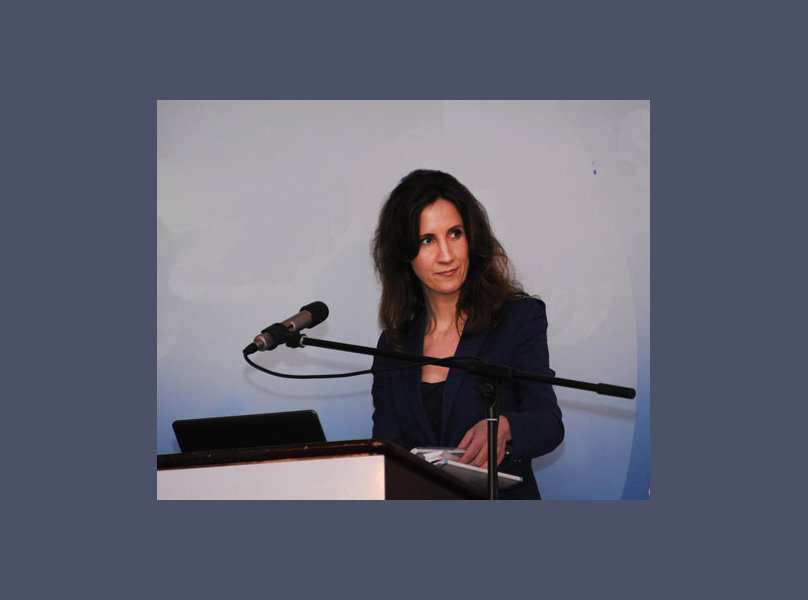DG of Engineers Ireland urges new Government to review capital plan
Engineers Ireland, the professional body representing 23,000 engineers from every discipline of the industry, has called on the new Government to review the capital plan, ‘Building on Recovery’, to ensure it is better able to deliver strategic national infrastructure projects in a timely manner.
Launching its annual ‘State of Ireland’ report today, Engineers Ireland put forward a range of actions in the key areas of energy, communications, transport, waste and water. This year, the organisation placed special emphasis on energy, formulating proposals using expert insights, and challenging industry and partners, including Government, to tackle climate change. The annual report grades Irish infrastructure and the 2016 report gives the country’s water supply and waste water infrastructure a D grade, while communications get a B, energy infrastructure a C, transport a C, and flood management and water quality a C.
The report launch was performed by the Minister for Communications, Climate Change and Natural Resources, Denis Naughten TD.
Minister Naughten welcomed Engineers Ireland’s report, saying it “provided valuable expert insight into infrastructure planning and delivery.”
[rev_slider Stel]
The Minister said: “The Government is committed to investing in strategic national infrastructure. We will continue to make significant long-term investments in areas like communications, transport, education, health and enterprise. In every part of the country, these investments will boost competitiveness, create jobs and improve equality of opportunity. Additionally, the over-dependence on fossil fuels challenges all of us to work together to find a balanced and sustainable energy mix. This effort must be marked by community consultation and open dialogue.”
In the ‘State of Ireland 2016’ report, Engineers Ireland urges the Government to adopt a leadership role on climate action, saying the country’s energy future depended on taking bold steps now to progressively transition to a carbon-free society. The incoming President of Engineers Ireland and energy expert, Dermot Byrne, said transport continues to account for a significant amount of Ireland’s carbon emissions.
“Engineers Ireland believes the national bus fleet and all vehicles operated by State agencies, including Government Ministers’ cars, should be converted to electric, compressed natural gas (CNG) and hybrid fuel sources. The roll-out of a network of CNG filling stations would cut our commercial fuel bill and transport gas emissions,” said Mr Byrne.
‘State of Ireland 2016’ recommends short and medium-term actions across energy, communications, transport, waste and water. In energy, among Engineers Ireland’s recommendations are:
- Develop a target-led and time-lined implementation plan for the recently published Energy White Paper, and stress-test and revise energy policy every three to five years;
- Boost public awareness of energy security and efficiency through tailored education and home retrofit programmes; carry out a deep retrofit of Ireland’s domestic dwellings and public buildings to reduce energy demand and increase energy efficiency;
- Convert all vehicles operated by State actors from fossil fuels to electric, hybrid or compressed natural gas (CNG) energy;
- Diversify the electricity fuel generation mix, expand the renewables base, explore technology solutions such as energy storage and further interconnection, and maintain investment in the transmission and distribution networks;
- Switch 900,000 homes not connected to the gas network to electric heating, rather than using fossil fuels;
- Develop our energy research and development capability so that Ireland becomes a world leader in this area.
“Ireland’s energy infrastructure is a key enabler for economic competitiveness and the move towards a carbon-free society,” said Byrne. “We have responsibilities under the European Union Renewable Energy Directive and the United Nations COP21 agreement to develop a sustainable energy system. This shift requires leadership and long-term planning, with targeted investment, co-ordinated decision-making and a partnership approach that engages society as a whole. Engineers Ireland will play its part in realising a carbon-free society by 2100,” said Mr Byrne.
“With a new Government in office, it is time to revisit the capital plan, ‘Building on Recovery’, which needs to deliver material progress in mission-critical areas like social housing, broadband, clean energy, schools, roads and flood defences,” said Caroline Spillane, Director General of Engineers Ireland.
[rev_slider Surety]
“The delay in progressing key projects, including appointing a delivery partner for the National Broadband Plan and building the North Runway at Dublin Airport, needs to be addressed. Already, the plan’s 2% spending target on infrastructure as a percentage of Gross Domestic Product is inadequate. That figure should be raised to at least 4%, with more urgency in delivering vital projects. The ‘Building on Recovery’ six-year plan provides for a mid-term review, but in truth the new Government should undertake the review now,” said Ms Spillane.
Engineers Ireland plans to engage all TDs and Senators in the next few weeks about its infrastructure report, especially in relation to climate change. It follows recent comments by Danny Healy-Rae, the TD for Kerry, who told the Dáil that humans have no influence over changes in weather patterns with which Engineers Ireland disagrees.

